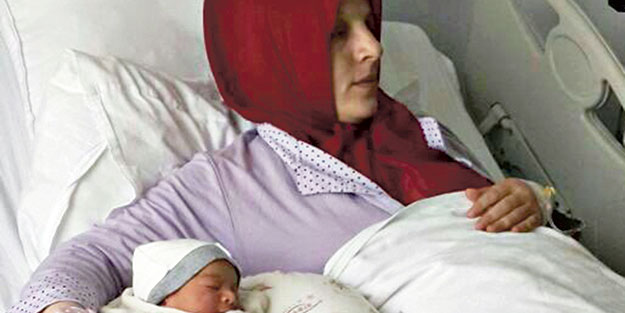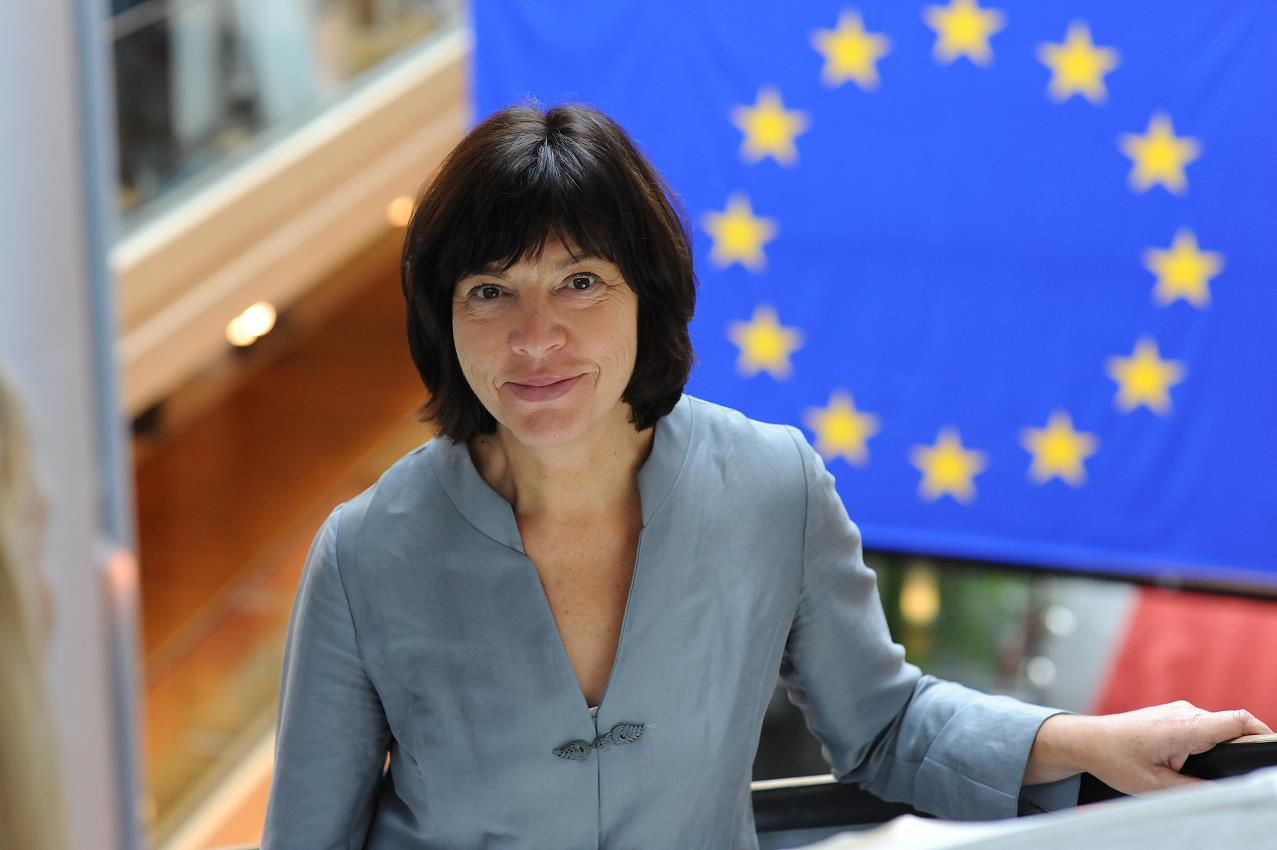by IHSAN GUMUS
Country: Turkey
In August of 2016, N.H., a housewife in Sinop province, was detained during the police control in traffic and put into the Sinop Prison. N.H. was 14-week pregnant with twins and in 19th day of detention she lost her twins. Just after a two-day stay in hospital she was put back into jail. The case was quoted by prominent columnist Emin Çölaşan from sad husband’s letter.[1]
In March of 2017, a pregnant woman whose husband has already been detained delivered a baby in solitude by herself when she was in detention in the Police Department of Ankara, in lack of any medical condition. She was then reluctantly hospitalized.[2]
In January of 2017, policemen coming into a hospital in Antalya were a little bit tolerant. They kindly waited in front of the room to take a pregnant woman who is being prosecuted. Right after the delivery, she was detained together with the newborn baby.[3]
In January of 2017, a woman with 5 children (one with Down’s syndrome) was detained in the entrance of the Sincan Prison of Ankara during their visit to the husband/father, and children remained alone with screams. The case recorded by a video shot by the eldest boy was reported by Mahmut Tanal, deputy from the main opposition party, Republican People’s Party (CHP).[4]
Mercy vs. Mercilessness
The above cases are selected among numerous arbitrary detentions involved by Turkish law enforcement bodies since the introduction of the state of emergency. In each of the cases, public prosecutor accused these women of being affiliated to the Gulenists[5] to which Erdoğan attributed the organisation of the coup attempt of 15th July 2016 but the international community has so far not been convinced.
What is striking in the context is explicit incompatibility of these practices with the Islamic rhetoric employed by the ruling party, AKP. Erdoğan and his top guys, not only in voting seasons but also in every chance they get, refer to main religious merits such as justice, tolerance, mercy etc. In such a country with overwhelming Muslim majority, that seems to be the norm if you wish to be known by voters as a “pious” man.
This could be better observed during the nation-wide ceremonies under the title of “Holy Birth Week” between 16-20th of April. Within these ceremonies led by the AKP government and its civil proponents, Prophet Mohammed (peace be upon him) is presented as “The Prophet sent as a mercy to the worlds.” Muslims are rightly proud of Prophet Mohammed’s merciful personality as it is the main constituent of the universe in Islamic rhetoric: “He [Allah] has prescribed Mercy on Himself” (Qur’an: Al-An’am- 12). Of course, no problem with the essence of this message.
However, increasing evidence implies that such messages were not really adopted or interpreted as limited to their own followers. It could even be said that, it is not mercy but mercilessness that has governed their mental image of the “National Will”. Thus, in his public speeches, Erdoğan articulates this principle as the following: “If you keep showing mercy, at the end you will become the one to be shown mercy!”
Here, I would only point out that, in their understanding females and children are not exempted from this principle; “guilt-by-association” applies in strict terms when their husband/father is deemed guilty.
Families under “civic death” conditions
Since last year’s failed coup, about 50.000 people have unjustly been jailed while nearly 140.000 civil servants dismissed with lifelong banishment from public sector. When doing this, both Executive and Judicial powers interpreted the state of emergency regime in a way to overrule the fundamental rights protected by the Constitution as well as the European Convention on Human Rights. This collaboration at the top triggered the pivotal process that I call the “crises”. So, the term “state of emergency” does not and cannot explain the situation in Turkey.
Although arbitrary detentions and dismissals were reacted by the international community in different contexts, little attention has been devoted to family members left behind. They remained even untouched in the speech held by Kılıçdaroğlu, the head of CHP, when anti-Erdoğan “March for Justice” reached İstanbul in 9th of July.
The term Civic Death suits best to their living conditions as collective and sharp-edged character of the punishments made them devoid of regular income. That is the case especially for female-headed families. At present, those people seem to be more vulnerable than any Syrian immigrant in Turkey as the latter could survive with various forms of humanitarian assistance.
International community should also be concerned that discriminative policy of Turkish government against those families would exacerbate the harshness of their subsistence and have a potential of exploitation and abuse. This pressing social issue may ultimately lead to a specific humanitarian action unless necessary measures are taken by the government in an appropriate and timely manner.
Dehumanization of children
The fact that the majority of women and men in detention are parents of dependent children should oblige politically sensitive groups like Friends of Turkey to call on Turkish government to take measures in order to promote social inclusion of these people. In this context, to enlighten the international community, the government should answer the following questions:
- Since 15th July of 2016, how many families have been affected by the coup-related detentions and dismissals?
- How many families have experienced financial losses as a result of parental incarceration?
- How many of them have been provided welfare assistance in either cash transfer or in-kind contribution, and how NGOs could involve existing governmental assistance programmes?
- Is there any mechanism that help families protect, nurture and care for detainees’ children? If no, what is the state of affairs in the field?
- Is there any mechanism providing or advocating for parenting programs in prisons? If no, what is the state of affairs in the field?
- Which kind of services and activities that assist detainees in carrying out family roles and responsibilities are in place?
- Which types of measures the government has introduced to mitigate family crises, loss and demoralization, and victimization of children?
- How many women have remained as single mothers who are assumed to be the sole care givers for their children?
- How many parents have been disallowed to see their children at all because the children are under the custody of the child welfare department?
- Has the government allocated additional human resources and/or budget to the Ministry of Family and Social Policies in order to mitigate extra workload driven by the parental incarceration? If no, what is the state of affairs in the field?
Finally, but not less relevant, within the context of parental incarceration, it should be interrogated whether special consideration is given to a Child-Sensitive Social Protection aiming at reducing and eliminating the economic and social vulnerabilities of children, women and families in order to ensure their rights to a decent standard of living and essential services.
Government spokesmen in Turkey frequently share updated figures of detentions, arrests, and dismissals with the media to prove the progress in struggle with “terrorists” i.e. dissent groups. Sure, that is a good communication policy that may encourage foot-dragging police chiefs to go witch-hunting. We could then be fully confident that those spokesmen would not have difficulty to respond the above questions.
Sensitivity to the suffering of “other”
Such questions make sense if you believe that everyone, whether he/she is guilty or not, just on the basis of being “human”, has right to live without inhuman or degrading treatment or punishment; without discrimination on any ground such as sex, race, colour, language, religion, political or other opinion, national or social origin, association with a national minority, property, birth or other status. Otherwise, they can disturb your ease.
Although this description is highly promoted by international community, it would not be realistic for the victims to expect solidarity from the majority of Muslim world including Turkish society. Available evidence indicates that, in that cultural niche of the world, “social polarisation” characterized by hatred, absolutism, and ideological rigidity does not leave any room to develop certain abilities of the human being such as the ability to think lucidly, the ability to communicate truthfully, and sensitivity to the suffering of “other”.
Therefore, it would be very significant if these questions are;
- brought on the agenda of the European Parliament and/or national parliaments,
- included into the checklists of UN, EU commissioners in charge of human rights,
- taken place and followed up within the country reports of relevant organisations like Human Rights Watch, Amnesty International, Freedom House, Chatham House etc.
- mentioned and brought into attention by journalists, human rights activists in free media.
#be voice of voiceless
Even if it fails, every effort to carry the topics up to headlines means being “voice of voiceless” in the full sense of the word. In contrary to this, sitting back implies that suffering people should be abandoned to their fates.
Also, you may not hope that Turkish politicians are familiar with the concepts like parenting issues, family roles etc. Whatever the case may be, it is vital for a democratically elected government to be clear about the following: social and economic risks that directly affect women’s and children’s lives are taken as a primary concern of itself. Here the mercy is!
References
[1] http://www.sozcu.com.tr/2016/yazarlar/emin-colasan/bu-haksizliklari-durdurun-1448641/ (15.10.2016)
[2] http://siyasihaber3.org/hamile-kadin-hucrede-kendi-kendine-dogum-yapti (27.03.2017)
[3] https://www.evrensel.net/haber/306206/1-gunluk-bebegi-ile-gozaltina-alindi (31.01.2017)
[4] http://www.cumhuriyet.com.tr/haber/turkiye/664494/Cezaevi_ziyaretinde_anneleri_de_gozaltina_alinan… (23.01.2017)
[5] An Islamic transnational religious and social movement led by Turkish preacher Fethullah Gülen who has lived in the United States. This movement was called by the European Commission as “Gülen Movement” in its Turkey 2016 Report.
LINKS:
Coup attempt
https://en.wikipedia.org/wiki/2016_Turkish_coup_d’%C3%A9tat_attempt
See also http://stockholmcf.org/a-new-report-in-sweden-reveals-erdogan-orchestrated-july-15-coup-in-turkey/
European Convention on Human Rights
http://www.echr.coe.int/Documents/Convention_ENG.pdf
Civic death
https://en.wikipedia.org/wiki/Civil_death
Friends of Turkey
child-sensitive-social-protection
- [ANALYSIS] Rule-With-Violence: Emergence of the Erdoğanist Paramilitary in Turkey - 30/05/2018
- [OPINION] The Rise of “Predatory Government” in Turkey: An Insight into the Social Background - 09/02/2018
- [OPINION] Commonwealth of Erdoğan: Milking Public Enterprises Through Turkey Wealth Fund - 29/09/2017


